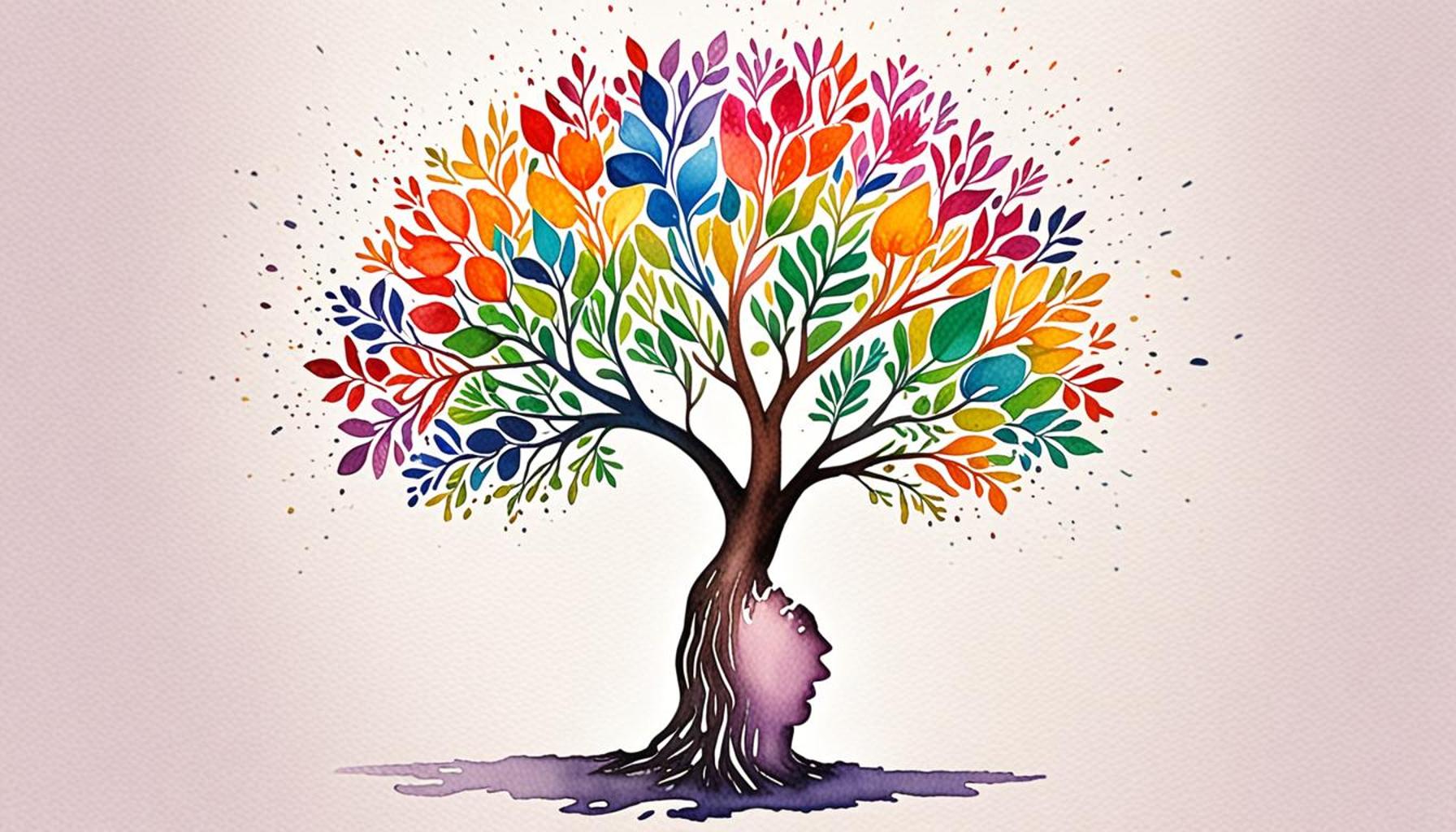Resilience in Times of Change: How a Growth Mindset Can Help Adapt to New Scenarios

Understanding the Importance of Adaptability
In an age characterized by relentless change and unpredictability, the capability to adapt is not merely advantageous; it is essential. For individuals and communities in Nigeria—where economic, political, and social landscapes often shift dramatically—this skill becomes an indispensable tool for survival and success.
Resilience acts as the backbone of this adaptability, empowering individuals to confront unforeseen challenges with confidence. When crises arise, whether they stem from economic downturns, environmental factors like climate change, or social upheaval, those who foster resilience are better equipped to navigate these turbulent waters and emerge not just unscathed, but fortified.
Embracing the Growth Mindset
A pivotal element in nurturing resilience is the cultivation of a growth mindset. Defined as the belief that one’s abilities and intelligence can be honed through dedication and effort, a growth mindset positions individuals to view challenges as opportunities for growth rather than insurmountable obstacles.
- Examples of Change: In Nigeria, citizens face shifts such as fluctuating oil prices, which affect the national economy, and increasing environmental challenges resulting from urbanization. Additionally, societal changes, exemplified by a growing youth demographic craving innovation and change, add layers of complexity.
- Benefits of a Growth Mindset: Those who embrace a growth mindset often find that their adaptability skyrockets. This enhanced adaptability not only aids in overcoming immediate challenges but also fosters improved problem-solving skills and heightened emotional intelligence—qualities crucial for teamwork and collaboration in diverse environments.
Practical Strategies for Fostering Resilience
By integrating the principles of a growth mindset into daily life, Nigerians can significantly enhance their ability to cope with challenges and harness new opportunities. For instance, community workshops that focus on upskilling individuals can transform fear of change into eagerness to learn, thereby reshaping the community’s outlook.
Furthermore, exploring stories of local resilience—such as entrepreneurs who started businesses from nothing amid economic upheaval—can inspire others to adopt similar mindsets. These narratives serve as testimonies to the potential of human spirit to innovate in the face of adversity.
As we embark on this comprehensive journey toward resilience, expect to uncover a reservoir of strategies that can turn obstacles into opportunities for both personal growth and community development. The exploration of how to thrive amid change is not just a personal endeavor; it is an invitation for collective growth that can reshape Nigeria’s future for the better.
ADDITIONAL INSIGHTS: Expand your understanding here
Building Resilience Through a Growth Mindset
As the world grapples with shifting paradigms, the call for resilience has never been more relevant. In Nigeria, change is not just a backdrop; it is a constant element of the daily narrative. Political shifts, economic fluctuations, and social transformations shape the landscape in which people operate. Navigating these changes requires a dependable framework, and that framework is resilience. But how can resilience be cultivated? The answer lies in adopting a growth mindset.
The Power of Perspective
A growth mindset enables individuals to perceive challenges differently. Rather than feeling overwhelmed by obstacles, people who adopt this mindset see them as opportunities to learn and improve. This transformational perspective fosters a proactive approach to change, allowing individuals to adapt instead of resisting. For example, during periods of economic instability in Nigeria, individuals who have embraced a growth mindset tend to seek innovative solutions rather than surrendering to despair.
Research suggests that a growth mindset impacts emotional resilience significantly. When individuals believe they can develop their skills and abilities, they are more likely to persevere in the face of setbacks. This concept has been underscored by studies focusing on communities undergoing rapid transitions or economic downturns, where resilience is critical to survival. Here are some ways in which adopting a growth mindset nurtures resilience:
- Encourages Continuous Learning: Individuals view failures as stepping stones towards improvement rather than permanent roadblocks, which fosters a culture of learning and innovation.
- Promotes Flexibility: Those armed with a growth mindset tend to be more adaptable, allowing them to pivot strategies as conditions change, a component critical in a dynamic environment like Nigeria.
- Enhances Problem-Solving Skills: Such individuals are skilled in thinking outside the box, which can lead to creative solutions in challenging scenarios, whether in business or everyday life.
- Builds Emotional Strength: People with a growth mindset are more likely to cultivate emotional intelligence, allowing them to connect with others and build supportive networks, which is essential during times of change.
This nuanced understanding of resilience through a growth mindset reveals its impact on both individuals and larger communities. As Nigeria continues to evolve amid various changes, communities that harness the power of resilience foster an environment conducive to growth, collaboration, and innovation. Each challenge faced becomes an integral part of the collective learning experience, paving the way for richer narratives of survival and success in the face of adversity.
Transformational Stories of Growth
Throughout Nigeria, numerous stories illustrate the profound effect of a growth mindset on resilience. Entrepreneurs emerging from humble beginnings have transformed challenges into opportunities, crafting businesses that not only serve local needs but also contribute to the economy. Such examples not only inspire but also serve as powerful motivators for others to reconsider their potential, reinforcing the belief that resilience can indeed spring from a growth-oriented perspective.
In summary, embracing a growth mindset is not merely an abstract concept; it is a vital strategy for fostering resilience in a rapidly changing world. By understanding and implementing the principles of this mindset, individuals and communities can better equip themselves to navigate the complexities of modern life and emerge stronger than before.
Exploring the Power of a Growth Mindset
In a world characterized by constant evolution, the ability to adapt is paramount. A growth mindset not only embraces challenges but also views failures as opportunities for learning. This concept, pioneered by psychologist Carol Dweck, emphasizes the belief that abilities and intelligence can be developed through dedication and hard work. When applied to everyday life, a growth mindset empowers individuals to navigate the unpredictable currents of change.
| Advantages | Benefits |
|---|---|
| Increased Adaptability | The ability to embrace change and adjust strategies effectively. |
| Enhanced Problem-Solving Skills | Encourages innovative thinking and creative solutions under pressure. |
By developing a growth mindset, individuals can face the unexpected with confidence and a proactive approach. This mentality fosters resilience, helping people to buffer against stress and uncertainty. Moreover, it promotes a culture of collaboration and learning, which is essential in both personal and professional realms. As organizations and communities experience transformations, those equipped with a growth mindset emerge not just intact, but also thriving and ready for what comes next. This exploration of resilience underlines the critical role that perspective plays in navigating life’s challenges.
YOU MAY ALSO LIKE: Read read another article
Strategies to Foster a Growth Mindset
While the benefits of a growth mindset in enhancing resilience are evident, the journey towards cultivating this mindset involves practical steps and dedicated effort. In Nigeria, where the socio-economic landscape is continually shifting, implementing strategies to foster a growth mindset can significantly transform how individuals and communities respond to challenges. Here are some effective approaches:
Embracing Challenges as Opportunities
To truly develop a growth mindset, one must embrace challenges rather than shy away from them. In Nigeria, where unforeseen circumstances can arise at any moment, finding ways to tackle these challenges head-on is paramount. For instance, during the COVID-19 pandemic, many Nigerian businesses expanded their digital presence as a direct response to business restrictions. By viewing the lockdown not as an obstacle but as a chance to innovate, business owners adapted their operations and even found new revenue streams. This shift not only sustained their businesses but also positioned them favorably for future growth.
Feedback as a Tool for Growth
Another essential element in fostering a growth mindset is actively seeking and valuing feedback. In a culture where hierarchy often influences communication, Nigerian individuals may hesitate to ask for input or critique. However, constructive feedback can catalyze growth and improvement. By creating environments—whether in schools, workplaces, or community groups—where feedback is welcomed and acted upon, people can learn from one another, leading to enhanced resilience against change. Initiatives such as peer mentorship programs or collaborative workshops can be instrumental in reorienting attitudes towards feedback as a path for development.
Setting Incremental Goals
Setting small, attainable goals can serve as a motivational springboard for individuals aiming to develop a growth mindset. In Nigeria, where large-scale achievements can sometimes feel overwhelming, breaking these achievements into manageable portions can help. For example, an aspiring entrepreneur may focus on developing one aspect of their business at a time, such as refining their product or enhancing customer service. Celebrating these small victories nurtures a sense of accomplishment and encourages further exploration and adaptation.
Building a Supportive Community
The significance of community in nurturing resilience cannot be overstated. Collaborating and sharing experiences with others who embody a growth mindset can create a supportive network that encourages risk-taking and experimentation. Community forums, workshops, or even social media groups focused on skills development can resonate well within Nigeria’s vibrant youth culture. These spaces allow individuals to learn from one another, share setbacks, and collectively celebrate successes, fostering an environment that thrives on resilience.
Mindfulness and Self-Compassion
Central to developing a growth mindset is the practice of self-compassion and mindfulness. In the context of Nigeria, where societal pressures can be immense, cultivating a sense of calm and acceptance regarding one’s limitations allows individuals to approach challenges with greater ease. Techniques such as mindfulness meditation or reflective journaling can enhance emotional regulation, enabling individuals to accept setbacks without fear of judgment.
By integrating these strategies into daily life, individuals and communities can fortify their resilience in the face of change. Ultimately, cultivating a growth mindset is not just about the individual journey; it is about building a culture that collectively adapts, flourishes, and transforms adversity into opportunity. As Nigeria continues to navigate its complexities, the commitment to fostering resilience through a growth mindset holds the potential to reshape the narrative of survival and success.
SEE ALSO: Click here to read another article
Conclusion
In an ever-evolving environment, nurturing a growth mindset emerges as a critical strategy for enhancing resilience. This is particularly true in Nigeria, a nation grappling with transformations across various sectors. As individuals and communities face the daunting effects of change—be it from economic challenges, social shifts, or health crises—the ability to adapt and thrive becomes imperative.
Through the lens of a growth mindset, individuals can redefine challenges as avenues for learning and progression. By actively seeking feedback, setting incremental goals, fostering supportive communities, and practicing mindfulness, Nigerians can cultivate a culture that promotes resilience and adaptability. The real triumph lies in recognizing that resilience is not a solitary endeavor; it flourishes in collaboration and shared experiences. Engaging with others who embody a growth mindset amplifies the potential for innovation, encouraging risk-taking in the face of uncertainty.
As the narrative of resilience in times of change continues to unfold, the insights gathered from local successes can inspire broader movements towards embracing challenges. Now more than ever, it is essential for individuals—whether entrepreneurs, students, or community leaders—to adopt a mindset geared towards growth and adaptability. By doing so, they not only enhance their personal capabilities but also contribute to the collective strength of their communities. In the face of change, a commitment to nurturing a growth mindset can transform obstacles into platforms for creativity, progress, and enduring success.



